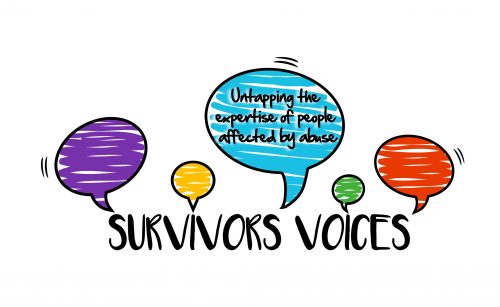Support, guidance and education

A Warm Welcome
You may publicly identify as an abuse survivor, or that may be a private part of your identity: you are welcome here.
You may be researching abuse or sexual violence: you are welcome here.
You may be planning to start a research project: you are welcome here.
You may be planning to (or already be) working in research around a different topic and yet your personal history of abuse means being part of this community would help you: you are welcome here.
You may be an experienced researcher in an academic post, an early career or independent researcher, a student completing your Masters or PHD, or a member of a lived experience advisory group (or similar role): you are welcome here.
This web-page offers information on good practice for abuse-survivor-researchers and for the inclusion of abuse-survivors in research. Survivors might be the main study lead, a co-producer, or a participant….whatever the role, this page offers guidance and information to improve the way we work.
All of the information has been generated by abuse-survivors. Predominantly the content has emerged from discussions in the peer support network (see below). As meetings pass the content below is updated with new information, links and references.
It is important to note the multiple use of the term ‘survivor’ in the worlds of abuse and mental health. In some circles ‘survivor’ is an identity adopted by people damaged by the services they turned to for help. This network is for abuse-survivors who may also be survivors of the mental-health psy services (psychiatry, psychology and psychotherapy). This delineation is not to exclude anyone, but to make the content and support relevant and focussed on the specific issues of being an abuse-survivor researcher. People who identify predominantly as survivors of the mental health service and as mental health service users may be interested in the work of the and Survivor Researcher Network

Survivors Voices Researcher Community
The vision for the Researcher Community is to create a platform for support, education and guidance for abuse-survivors who are researchers leading, co-producing or participating in research studies.
To join the community please READ THIS PDF (click on the red text for the PDF to open) and fill in the form below:
All meeting are on Zoom. 12-30-1.30pm, monthly, alternating between Tuesdays and Wednesdays. The zoom link will be sent out every month a few days before the meeting.
- The hour starts with members sharing in the chat their research interests/study to facilitate networking.
- Next a ‘check-in’ go-around welcomes every person into the space: however you find yourself on the day, you are welcome, just as you are, triggered or steady.
- The go-round may yield a focus for discussion or a topic suggested in the schedule may unfold.
- On months with a guest speaker the format remains the same but the discussion will follow a 15/20 minute talk by the guest.
- All speakers identify with lived experience and work as researchers and/or activists in the field.
If you feel in need of support during the session, a breakout room is available with a peer support worker to listen and support you and/or offer signposting to further support.
Upcoming meetings
Tuesday 25th March – Peer support and peer reflective space
Wednesday 16th April – Guest speaker
Tuesday 13th May – Peer support and peer reflective space
Wednesday 11th June – Guest speaker
Tuesday 8th July – Peer support and peer reflective space
 CLICK HERE TO TRAVEL TO THE LINKING SERVICE PAGE
CLICK HERE TO TRAVEL TO THE LINKING SERVICE PAGE
Click on any of the following links for notes from our Community discussions. These are working documents that we update whenever new information becomes available, or from our gatherings. If you have anything to add please contact Arti

